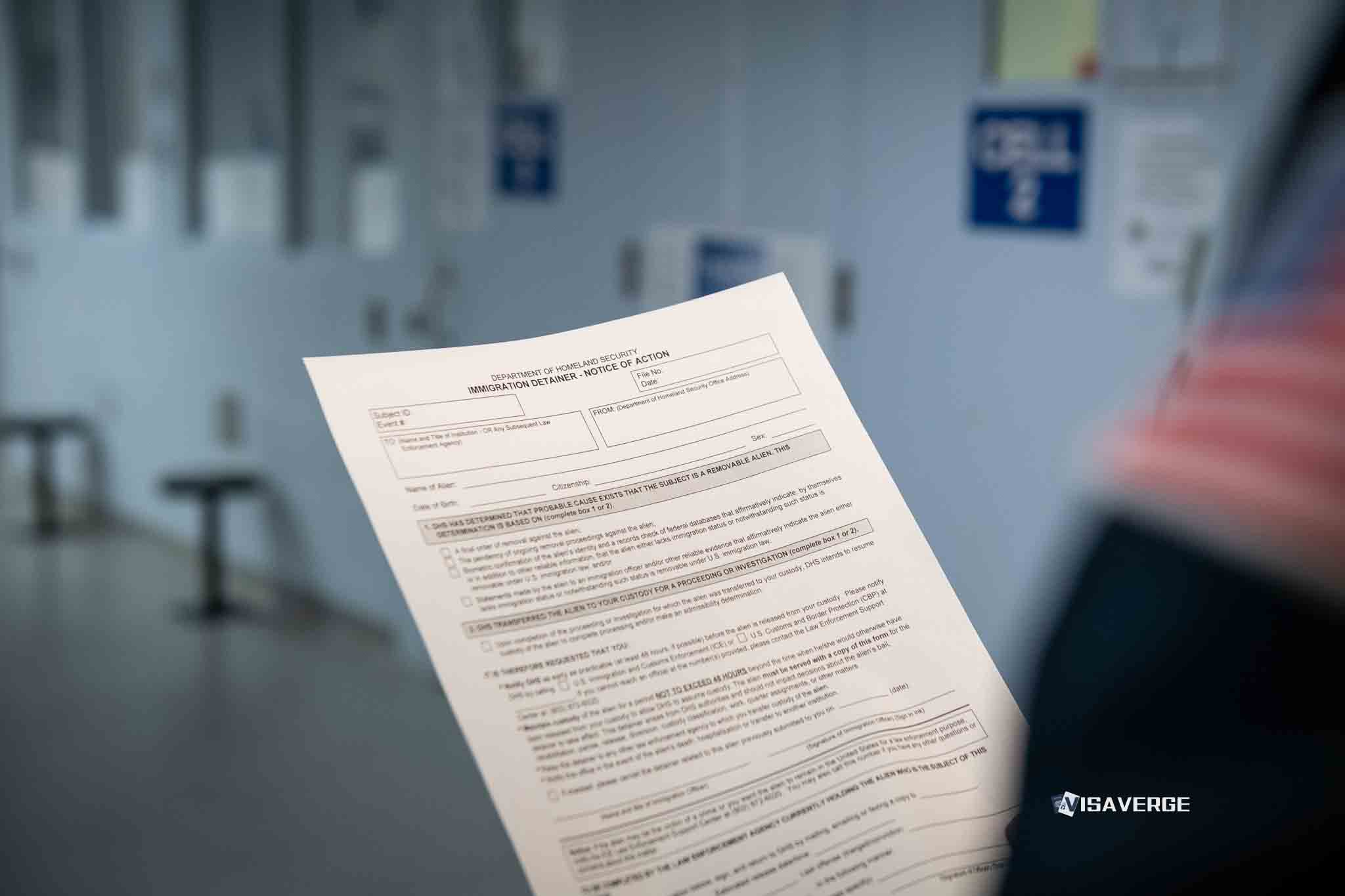A recent claim involving an Indian woman urging U.S. Immigration and Customs Enforcement (ICE) to deport her husband, whom she calls a fake asylee, has drawn attention to the strict enforcement of asylum fraud in the United States 🇺🇸 in 2025. While no official case matching this exact scenario has been reported, the situation highlights how ICE handles suspected fraudulent asylum claims and what steps individuals can take if they suspect immigration fraud.
ICE’s Focus on Asylum and Marriage Fraud

In 2025, ICE and Homeland Security Investigations (HSI) have made it a priority to find and prosecute people who file fake asylum applications or enter into sham marriages to get immigration benefits. In April 2025, a large marriage fraud ring was broken up, leading to several arrests and charges for both visa and marriage fraud. U.S. Citizenship and Immigration Services (USCIS) played a key role in finding these cases. This shows that ICE is serious about stopping people from using fake stories or relationships to stay in the United States 🇺🇸.
Tougher Asylum Policies and Faster Deportations
Since January 2025, the United States 🇺🇸 has made it harder for people to apply for asylum. Many ports of entry are now closed to asylum seekers, and Customs and Border Protection (CBP) officers have been given more power to use something called “expedited removal.” This means that if someone fails a “Credible Fear Interview”—a first step where they must show they are truly afraid to return to their home country—they can be quickly deported without a full court hearing. These changes make it easier for ICE to find and remove people who make fake asylum claims.
How ICE Handles Suspected Fake Asylees
When someone is suspected of being a fake asylee, ICE can start an investigation. If they find proof of fraud, the person can be put into expedited removal proceedings. This process skips the usual court hearings and allows ICE to deport the person quickly. In some recent cases, people have even been arrested right after their court hearings, showing how aggressive ICE has become in 2025.
If a spouse, like the Indian woman in the claim, believes her partner is a fake asylee, she can report her concerns to ICE or USCIS. These agencies have special teams to look into immigration fraud. However, ICE needs real evidence before taking action. They cannot deport someone just because of an accusation; there must be proof that the person lied or used fake documents.
No Public Case Matching the Indian Woman’s Claim
Despite the strict enforcement, there is no public record of a case where an Indian woman has asked ICE to deport her husband as a fake asylee in 2025. If such a case existed, it would likely be part of ICE’s fraud investigations, but it has not been reported in the news or official statements. This does not mean these situations never happen, but rather that they are not always made public.
Expert Opinions and Concerns
Some immigration experts and legal advocates have raised concerns about the 2025 asylum policies. They argue that making it harder to apply for asylum and using expedited removal can hurt people who have real fears for their safety. These experts say that the new rules might break the Refugee Act of 1980, which was created to protect people fleeing danger. They also warn that the tough approach could scare away real asylum seekers and make it harder to tell who is lying and who is telling the truth.
What to Do If You Suspect Asylum Fraud
If you suspect someone is a fake asylee, there are steps you can take:
- Report to ICE: You can contact ICE Homeland Security Investigations (HSI) to report suspected immigration fraud. They have a tip line and an online form for this purpose.
- Contact USCIS: If you know someone who lied on their asylum application, you can also report it to USCIS. They will review the case and may refer it to ICE for further action.
- Gather Evidence: Before reporting, try to collect any proof you have, such as false documents, fake stories, or other signs of fraud. ICE and USCIS need real evidence to start an investigation.
- Seek Legal Advice: If you are involved in a case like this, it is wise to talk to an immigration lawyer. They can explain your rights and help you understand the process.
For more information on how to report immigration fraud, you can visit the official ICE HSI Tip Form.
Legal Process and Rights
Even if someone is accused of being a fake asylee, they still have some rights. ICE must follow the law and give the person a chance to respond to the accusations. In expedited removal cases, the person may have a short interview with an asylum officer. If they fail, they can be deported quickly, but they can also ask for a review by an immigration judge in some cases.
Impact on Families and Communities
Cases involving accusations of fake asylum claims can have a big impact on families. If an Indian woman reports her husband as a fake asylee, it could lead to family separation, legal battles, and emotional stress. Children and other family members may be affected, especially if the accused person is the main provider. Communities with many immigrants may also feel the effects, as these cases can create fear and mistrust.
Advice for Affected Individuals
- Stay Informed: Keep up with changes in immigration laws and policies. The rules can change quickly, and knowing your rights is important.
- Get Help: If you are accused of fraud or are thinking about reporting someone, talk to a trusted immigration lawyer or a nonprofit group that helps immigrants.
- Be Honest: Always tell the truth on immigration forms and during interviews. Lying can lead to serious consequences, including deportation and being banned from returning to the United States 🇺🇸.
Resources for Reporting and Legal Help
- ICE Homeland Security Investigations (HSI): Handles immigration fraud investigations.
- USCIS: Reviews asylum applications and can refer cases to ICE.
- Immigration Attorneys: Offer legal advice and representation.
- Nonprofit Organizations: Many groups provide free or low-cost help to immigrants.
As reported by VisaVerge.com, ICE’s focus on stopping fake asylees and marriage fraud has made the process stricter in 2025. While no public case matches the story of an Indian woman urging ICE to deport her husband as a fake asylee, the current environment means that anyone involved in or suspecting fraud should act carefully and seek proper guidance.
In summary, while the claim about the Indian woman and her husband has not been confirmed, the United States 🇺🇸 continues to take strong action against fake asylees. Anyone with concerns about asylum fraud should use official channels to report it and get legal advice to protect their rights and families.
This Article in a Nutshell













